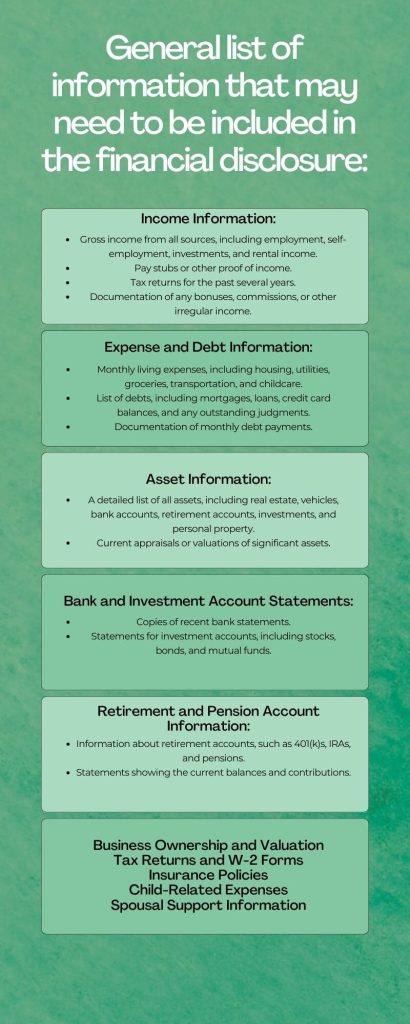The divorce process in Louisiana typically involves filing a petition for divorce, serving the other spouse with the legal documents, and attending a court hearing. If spouses can agree on the terms of the divorce, they may opt for a simplified process. However, if they cannot reach an agreement, the court will make decisions regarding property division, child custody, and support.
Table of Contents
ToggleIf you are reading this article, then you have probably decided to end your marriage. Many spouses planning to file for divorce are often concerned by its complexity and wonder, “What is the process for getting a divorce in Louisiana?”
In Louisiana state, divorce process typically comprises 10 main steps if it is uncontested, from discussing the conditions with your spouse to obtaining a final judgment. In this article, we will provide detailed information on each divorce step so that you can check how to get a fast and smooth marriage dissolution without hiring a lawyer.
Step 1: Reach an Agreement with Your Spouse

To obtain an uncontested divorce in Louisiana, you should have no disagreements with your spouse about the property division, alimony, custody over your children, the amount of child support, etc. If you don’t have any disputes, you can proceed with your case without a lawyer’s help, prepare divorce papers in Louisiana on your own or using online service, and fulfill all the subsequent steps.
The mutual agreement divorce in Louisiana is beneficial for both parties in many ways – it is cheap, quick, and more or less simple compared to a contested one. In general, the faster you and your spouse find common ground, the sooner your marriage dissolution will be finalized.
Step 2: Meet residency requirements
Before filing, you need to be sure that the court has jurisdiction over your case. It means that you must meet Louisiana residency requirements. According to state laws, the residency requirements for divorce in Louisiana is living there for at least 6 months.
Please note that you cannot start the filing process until you comply with this demand. Either you or your spouse should be a state resident for a specified period to proceed with your marriage dissolution.
Step 3: Complete the Required Forms

Preparing the paperwork is an important step of your divorce that requires due attention. Many forms may be needed for filing for divorce in Louisiana. Consequently, your first task will be determining which papers are required for your case. Then, you will have to look for those forms and make sure they are up-to-date.
After that, you can fill out your forms. You will have to provide details of your marriage and information about you, your spouse, and your kids. It’s also vital to ensure that there are no mistakes in the paperwork; otherwise, your documents will be rejected by the court clerk.
To be on the safe side, you can order your forms from an online divorce provider and get the full set of court-approved forms in just a few days.
Step 4: File a Petition for Divorce
As soon as you complete your divorce paperwork, you must file your Petition for Divorce in Louisiana and other documents with the Judicial District Court of the parish of your residency. Alternatively, it can be a parish where your spouse lives or where you last resided together.
Submit the papers to the court clerk and pay the filing fee. In Louisiana, it is approximately $330. If you cannot pay it, you can ask the judge to waive the costs by applying for a fee waiver. You will need to provide information about your income and whether you receive any governmental benefits. You won’t have to pay the court fees if the judge grants the request.

Step 5: Serve divorce papers
After you have provided the court with your Louisiana divorce forms, you must send the copies to your spouse. It will be an official notification that you have initiated a dissolution process. There are several ways to serve the papers:
- You can deliver the forms personally if the second party agrees to sign the waiver of service, a form which you must then file with the court.
- A parish sheriff can serve the papers to your spouse. It is considered a default way of serving in the state.
- You can hire a professional process server to deliver the papers if the sheriff cannot deliver the paperwork or you need to do it very quickly. This service may cost you more than $100.
- Finally, if your spouse lives in another state, you can make a long-arm service.
Step 6: Wait for the statutory waiting period

When your spouse gets the papers, they have 15 days to provide a response to a divorce petition in Louisiana. However, even if they provide the answer, it does not mean that the court can review your divorce case immediately.
You will also have to consider the required separation period for no-fault cases, which is at least 180 days from the moment separate residence started till the divorce can be granted. If you and your spouse have minor children, you will have to wait for at least 1 year. When the separation requirement is met and the other party has been served, the judge can start reviewing your case shortly after. However, the divorce process may be prolonged if the court is busy with other cases.
Step 7: Prepare and Sign a Settlement Agreement
During the mandatory waiting period, a couple can make all the important decisions on the marriage termination terms and create a divorce settlement agreement. In the document, you will have to agree on all the important matters of your divorce, such as property division, alimony, child custody and support, etc.
Property division agreement
The courts in Louisiana make a decision on property division based on the community property principle, meaning that property acquired during the marriage will be shared 50/50, no matter by whom it was acquired and how. If you want the court to consider some property as separate, you will have to provide some proof.
Taking into account the specifics of division laws in the state, spouses who file for an uncontested marriage dissolution make their own divorce property settlement in Louisiana, where they decide who will own this or that property.
Child custody and support agreement
In order to get their divorce finalized, a couple must decide on the custody of their children. They can seek joint custody in Louisiana, or one spouse can obtain sole custody while the second parent gets visitation rights. However, it is important to base your decision on the best interest of your child since it is the primary concern of the court.
Finally, the spouses must also agree on the amount of child support since, according to Louisiana laws, both parents must financially support their child no matter what type of custody they are awarded. The amount of support can be calculated according to the state formula.
Spousal support agreement
Alimony in Louisiana is one more important point that must be discussed by the spouses before getting a divorce. If one of the spouses needs to be financially supported, you will have to agree on the type of alimony – interim, final, or both – and its amount.
Step 8. Complete a Financial Disclosure if Required
Spouses should be ready that the court may ask them to provide detailed information on their finances, such as incomes, taxes, debts, etc. Make sure to specify all the data needed and give actual details to avoid any potential consequences during the divorce process, since concealment of finances will likely negatively impact court decisions on property division, alimony payments, child support arrangements, etc.

Step 9: Wait for a court review and approval
As soon as you agree on all the aspects of your no-fault divorce in Louisiana, and the mandatory waiting period is over, the court clerk can schedule the final hearing date. During it, the judge reviews all the paperwork and, if everything is in order, grants a divorce by signing the Final Judgment. Check with the court in advance if you should be present during this hearing.
Step 10: Obtain the final Judgment of Divorce
After the court grants your divorce, you can obtain a copy of your final divorce decree from the clerk in the court where your case was heard. You may be required to pay the fee for getting copies of the document.


Toby Releya is a seasoned family law expert, who has written hundreds of articles about divorce. As an avid researcher with experience in law analysis, Toby offers readers a unique perspective on legal matters surrounding the divorce process. When not delving into the intricacies of family law, Toby enjoys exploring the great outdoors, visiting national parks across the US, and photographing his adventures on the go.



